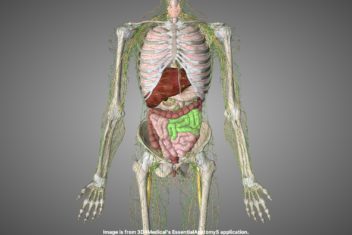Rosacea is a chronic, inflammatory skin condition that primarily affects approximately 5% of adults over the age of 30, impacting...
Inflammation
Gut dysbiosis links to development of uterine fibroids? True. A dysbiotic gut results in an altered microbiome and altered levels...
We live in a generation of inflammation. Why? Inflammation is the body’s natural and healthy response to repair damaged tissues and eliminate toxins. However, when this response becomes chronic, it results in the ongoing presence of an active immune response. This state of low-grade inflammation can lead to shifts in...
Join Dr. Laura M.Brown, ND and Amanda Gazzola in an in depth conversation on the impact of stress on gut...
The microbiome is a large body of bacteria, and some fungi and viruses that helps humans with detoxification, protection and...
Joint pain is marked with stiffness, aches, pain and reduced mobility. It can occur in one or more joints, be one side or both sides of the body. It can occur at any age in any gender in people all around the world. There are many types of joint pain...
Many medications disrupt the natural flora and damage the gut lining. Those with antibacterial actions, such as antibiotics, certain cancer...
At the site of any organ or tissue damage, there is inflammation. Long term chronic disease is often a result...
Endometriosis is a chronic inflammatory condition affecting 10% of reproductive aged women. Genetics, environmental factors, and immune system all appear to contribute to its development. The hallmark symptoms of uterine cell mis-location to areas outside the uterus is in response to the woman’s hormonal cycle of growth and bleed, sparking...
We have skin on the outside and skin within. Our skin within, which is our gastrointestinal lining, is very thin....
Aging for most means progression to inflammation and reduced immune capacity. Adverse changes in the microbiome contribute to 16-18% of...
Often sensitivities go undiagnosed because the reaction is gradual and will happen within 3 minutes to 3 days. This makes it more difficult to pinpoint which food is the trigger. Being sensitive to a food may mean you need to avoid it completely, or be able to have a small...














